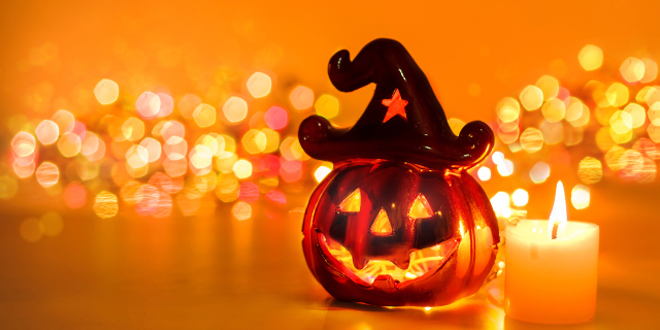
Halloween: A satanic cult or just another costume party?
Halloween is considered a taboo in Pakistan and a majority of Muslim nations because of its association or rumored association with Satanism. Halloween is considered to be the day where both children and adults dress up to celebrate the dead and acknowledge Halloween as the day when their dead are resurrected.
However, this one perspective is so massively given attention to that other stances of why Halloween exists have been diminished.
Basically, Halloween is the season for little phantoms and trolls to take on the avenues, going around for candy and startling each other senseless. Spooky tales are told around bonfires, scary thriller movies show up in theaters or TV and pumpkins are expertly and/or amateurishly cut into jack-o’-lanterns.
In the midst of all the corporate greed, houses faked or known to be haunted and phony signs of warnings about razors in apples, the roots of Halloween are regularly ignored. Yet Halloween is substantially more than just outfits and treats; truth be told, the occasion has a rich and intriguing history.
Halloween, otherwise called All Hallows’ Eve, can be followed back around 2,000 years to a pre-Christian Celtic celebration held around November 1st, called Samhain (pronounced “sah-win”), which signifies “summer’s end” in Gaelic, as per the Indo-European etymological dictionaries.
Since old records are inadequate and scrappy, the precise way of Samhain is not completely interpreted, but according to most narrations, it was a yearly shared meeting toward the end of the harvest year, a period to accumulate assets for the winter months and bring back animals from the meadow fields. Samhain is also considered to have been a period of connecting with the dead, as indicated by folklorist John Santino.
However, in reference to Nicholas Rogers, a history professor at York University in Toronto and author of Halloween: From Pagan Ritual to Party Night, “There is no hard evidence that Samhain was specifically devoted to the dead or to ancestor worship”.
Therefore, I think it is safe to say, that Halloween can be enjoyed by everyone – if not celebrated by all. It is the meaning you give to it that will define it for you and others around you. A person like me thinks of Halloween as a day for kids to go around door-to-door asking for free candy and happily getting tons of it. (I once used a pillow cover as my bag.)
While for others, it’s another day to throw a party, and this party particularly being a costume one. So, if you can have themed birthday parties, masquerades, costume parties itself, then why not rejoice Halloween? You don’t have to worship anything or anyone or give it any sort of religious context. As I mentioned above, Halloween holds a more deep meaningful symbol than to connect with the dead, which is just another bogus myth of the day.
Through the ages, different fantasy entities — including pixies and witches — came to be linked with Halloween, and over a century prior in Ireland, the occasion was said to be a period when spirits of the dead could come back to their old frequenting grounds. The costumes of ghosts and witches have even modernized to being more fashionable and less horrible, due to the holiday engaging to be more commercialized. Therefore the choices of costumes have broadened from just being spooky to superheroes, princess and even government officials. So take this like another costume party, and enjoy the day of free candy, and nothing more.

